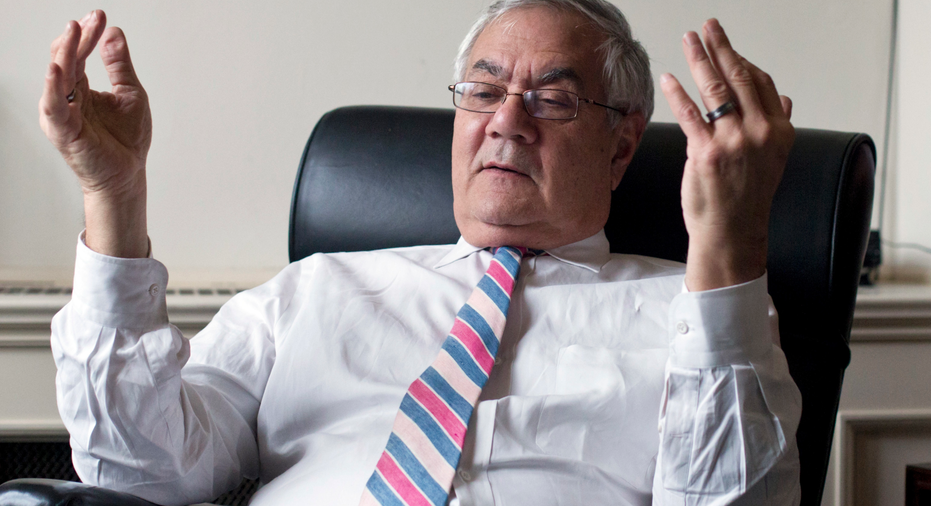Co-author of Dodd-Frank says bill's foundation will survive

WASHINGTON – President Donald Trump vowed to do a "big number on" the banking law enacted after the financial crisis a decade ago, but the law's co-author and namesake says he's confident that the essence of Dodd-Frank will survive Republican efforts to dismantle it.
"It's much better than where I thought we would be," former Democratic Rep. Barney Frank of Massachusetts said recently.
Sitting outside the House chambers recently doing a crossword puzzle, Frank sounded rather pleased that whatever happens this year, the Dodd-Frank act will live on. The Republican-controlled House passed legislation to dramatically scale back the government's oversight role, but it has no chance of passage in the Senate. The Senate bill, a bipartisan measure, is decidedly more modest. Republican leaders from the two chambers are now trying to work out a compromise that can pass both chambers and get to the president's desk before November's midterm elections.
To be clear, Frank said he would have voted against both versions. But he considers the Senate bill an "affirmation" of most of Dodd-Frank.
"Given the choice, I can live with it," Frank said.
Dodd-Frank, which Frank crafted alongside Sen. Christopher Dodd, D-Conn., boosted government oversight of banks in a bid to reduce risk and prevent another financial meltdown like the one in 2008. At the urging of banks, credit unions and other financial institutions, Congress is seeking easing some of the regulatory requirements the bill created.
The chief feature of the Senate bill is that it would shrink the number of banks that received extra government monitoring because they are deemed so important to the economy. The bill raises the asset threshold at which banks must comply with stricter capital and planning requirements, including yearly stress tests and developing "living wills" for an orderly liquidation in times of crisis.
Frank said the current threshold, $50 billion, "really was too low." He said he prefers $125 billion and indexed to grow with inflation. The Senate bill moves the threshold to $250 billion. Frank said that's a mistake "but not a terrible one."
"I would have liked a bigger margin of error," he said.
Frank now serves on the board of directors at Signature Bank, which has offices in New York and Connecticut and which has advocated moving the threshold to at least $100 billion. The bank argues that it should not be subject to the same standards as a "truly complex, systemically important trillion-dollar financial institution."
Frank said what the Senate bill doesn't do is why Dodd-Frank will live on. The bill doesn't change the structure of the Consumer Financial Protection Bureau, which expanded regulators' ability to police mortgages, credit cards and student loans. The bureau has returned about $12 billion to people wronged by financial institutions. It also doesn't change Dodd-Frank's requirement of having more collateral to back the kind of derivative trades that triggered the 2008 meltdown.
While Congress won't pass a bill that goes after the consumer bureau this go-around, the Trump administration has cut back on enforcement actions during Mick Mulvaney's tenure as acting director. Mulvaney has placed greater emphasis on the bureau educating consumers as well as the industries it regulates.
Once Congress has taken its best shot at changing the bill, Frank is doubtful lawmakers will seek to redo Dodd-Frank again anytime soon.
"If this bill becomes law, there will be no further legislative changes to the structure of (Dodd-Frank)," predicted Frank, who served in Congress from 1981 to 2012.
Going forward, Frank said he believes GOP leaders in the House will be forced to go along with the Senate-passed bill. That's an assessment they disagree with, but Frank said GOP House members now will be hard-pressed to reject the wishes of their community bankers, who have called on House Speaker Paul Ryan, R-Wis., to bring the Senate bill up for a vote.
"There will be no changes in the Senate bill," Frank said flatly. "If the House gets any concession, it will be a package of noncontroversial bills passed separately."



















